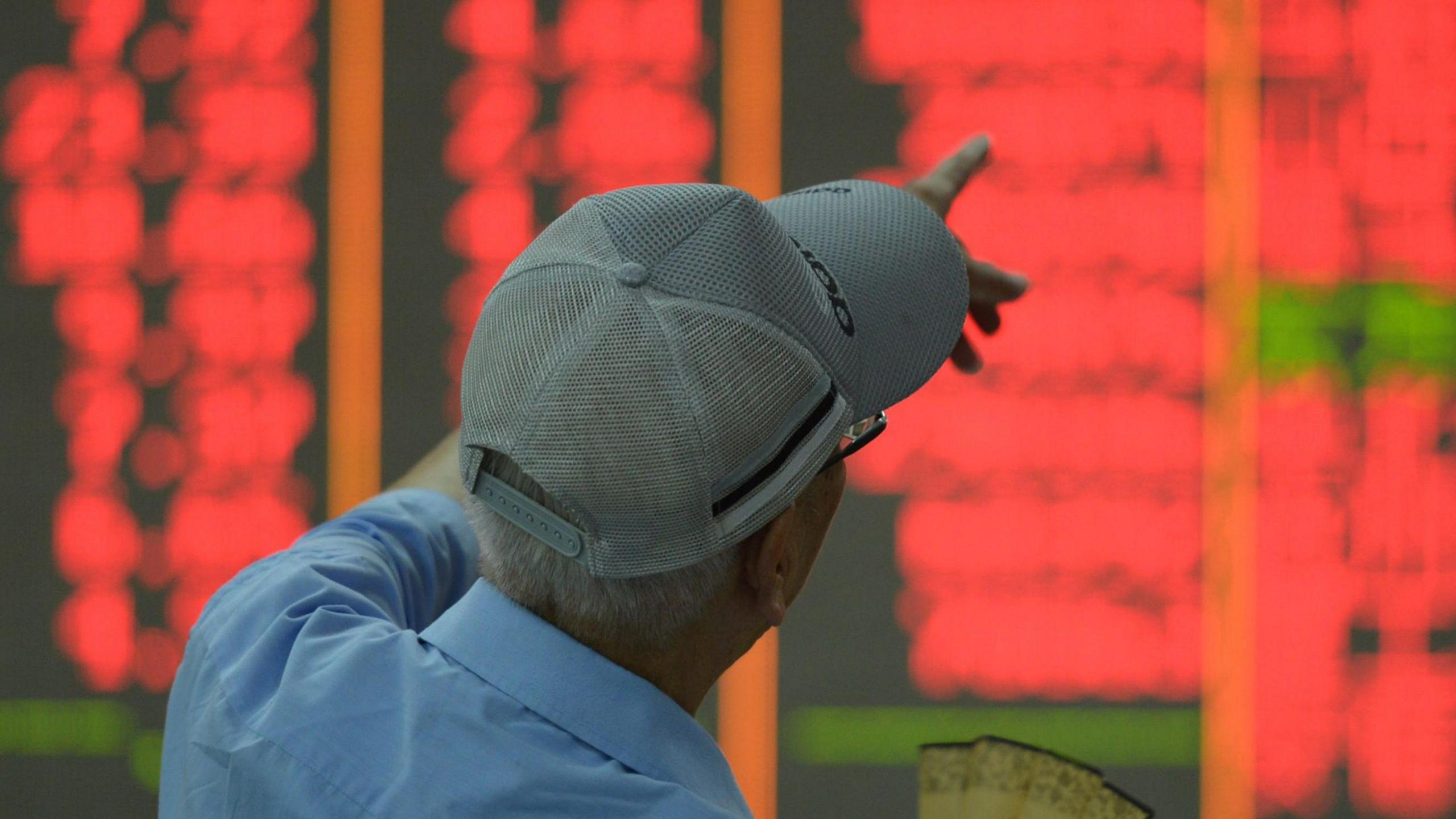China stock rally fizzles as stimulus news disappoints

Shares had jumped by more than 10% as trading restarted after the Golden Week holiday
- Published
A stock market rally in China has fizzled out as a highly-anticipated announcement on plans to boost the country's ailing economy disappointed investors.
Shares had jumped by over 10% as trading restarted after the Golden Week holiday but fell back after a news conference by the country's economic planners.
After a volatile day of trading, the Shanghai Composite Index in mainland China closed 4.6% higher, while the Hang Seng in Hong Kong slumped by 9.4%.
Investors had been hoping for more information about how the government plans to support economic growth but the announcement gave little in the way of details.
The chairman of China's National Development and Reform Commission Zheng Shanjie said he is "fully confident" the country will achieve its full-year economic and social goals.
But he added: "The downward pressures on China's economy is also increasing".
Mr Zheng's comments came as he announced that China will issue 200 billion yuan ($28bn; £21.5bn) for spending and investment projects by the end of this year.
"The market really expected more. The correction will be even stronger if the data on the Golden Week in terms of consumption is weak," said Alicia Garcia-Herrero, chief economist for the Asia Pacific region at investment bank Natixis.
"The market is reacting to the lack of a real fiscal stimulus. I would not have organised a press conference not to announce anything new."
The Chinese government has been trying to boost confidence in the world's second largest economy as concerns increase that it may miss its own 5% annual growth target.
Xi Jinping is worried about the economy - what do Chinese people think?
- Published30 September 2024
As communist China turns 75, can Xi fix its economy?
- Published4 October 2024
Investors have been pouring into Chinese stocks since officials began rolling out a raft of measures aimed at boosting the economy.
The plans included help for the country's crisis-hit property industry, support for the stock market, cash handouts for the poor and more government spending.
But some economists have questioned whether the policies will be enough to fix China's economic problems.
They say deep reforms might be needed in order to set the country on a more sustainable growth path.
Growth has been slowing in the world's second largest economy as it continues to face a property market slump, falling prices and other challenges.